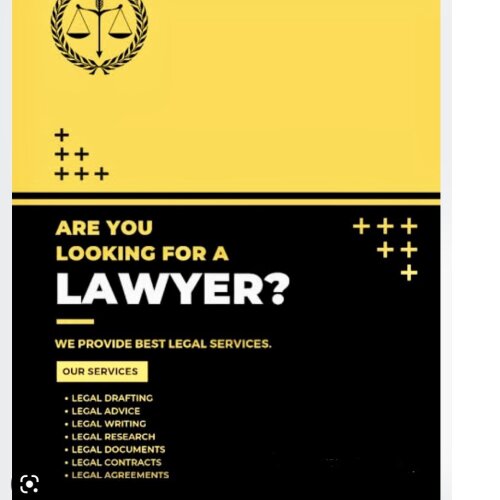Best Tax Lawyers in Osogbo
Share your needs with us, get contacted by law firms.
Free. Takes 2 min.
List of the best lawyers in Osogbo, Nigeria
Nigeria Tax Legal Articles
Browse our 1 legal article about Tax in Nigeria written by expert lawyers.
- An Overview of The Taxation of Non-Resident Companies in Nigeria
- A company in Nigeria, whether resident or non-resident, is subject to taxation if its income falls within the scope of the Companies Incomes Tax Act. It is important to note that Nigerian tax laws do not exempt the income of a branch of a business or company from taxation. While... Read more →
About Tax Law in Osogbo, Nigeria:
Tax law in Osogbo, Nigeria governs the imposition and collection of taxes by the government. Taxes are levied on individuals, businesses, and other entities to fund public services and infrastructure. Understanding tax laws is essential to ensure compliance and avoid penalties.
Why You May Need a Lawyer:
You may need a lawyer for tax-related matters such as filing tax returns, resolving disputes with tax authorities, claiming tax deductions, and structuring business transactions to minimize tax liabilities. A lawyer can provide legal advice, represent you in tax audits, and help you navigate complex tax laws.
Local Laws Overview:
Some key aspects of tax laws in Osogbo, Nigeria include the types of taxes imposed, tax rates, filing deadlines, tax incentives for businesses, and penalties for non-compliance. It is important to stay informed about tax laws to avoid legal issues and financial consequences.
Frequently Asked Questions:
1. What are the types of taxes imposed in Osogbo, Nigeria?
In Osogbo, Nigeria, common types of taxes include personal income tax, corporate income tax, value-added tax (VAT), capital gains tax, and withholding tax.
2. When are tax returns due in Osogbo, Nigeria?
Tax returns are typically due on March 31st of the following year for individuals and June 30th for businesses in Osogbo, Nigeria.
3. Are there any tax incentives for businesses in Osogbo, Nigeria?
Yes, the government offers tax incentives such as tax breaks, exemptions, and deductions to encourage investment and economic growth.
4. What are the penalties for late payment of taxes in Osogbo, Nigeria?
Penalties for late payment of taxes may include fines, interest charges, and legal action by tax authorities.
5. Can I appeal a tax assessment in Osogbo, Nigeria?
Yes, you can appeal a tax assessment by filing a complaint with the relevant tax authorities and seeking legal assistance if necessary.
6. How can I reduce my tax liabilities in Osogbo, Nigeria?
You can reduce your tax liabilities by taking advantage of tax deductions, credits, incentives, and engaging in tax planning strategies with the help of a tax lawyer.
7. Do I need to keep records of my income and expenses for tax purposes in Osogbo, Nigeria?
Yes, you are required to keep accurate records of your income and expenses to support your tax returns and respond to inquiries from tax authorities.
8. Can I deduct business expenses from my taxable income in Osogbo, Nigeria?
Yes, you can deduct legitimate business expenses from your taxable income to reduce your tax liabilities.
9. What are the steps to register for tax in Osogbo, Nigeria?
To register for tax in Osogbo, Nigeria, you need to obtain a Taxpayer Identification Number (TIN) from the Federal Inland Revenue Service (FIRS) and comply with the registration requirements for your business or individual status.
10. How can a tax lawyer help me with tax planning in Osogbo, Nigeria?
A tax lawyer can help you develop tax-efficient strategies, structure transactions, interpret tax laws, and represent you in dealings with tax authorities to minimize your tax liabilities and ensure compliance.
Additional Resources:
For more information on tax laws in Osogbo, Nigeria, you can visit the Federal Inland Revenue Service (FIRS) website or consult with local tax professionals and legal experts specializing in tax law.
Next Steps:
If you need legal assistance with tax matters in Osogbo, Nigeria, consider contacting a reputable tax lawyer who can provide personalized advice, representation, and guidance tailored to your specific tax situation and objectives.
Lawzana helps you find the best lawyers and law firms in Osogbo through a curated and pre-screened list of qualified legal professionals. Our platform offers rankings and detailed profiles of attorneys and law firms, allowing you to compare based on practice areas, including Tax, experience, and client feedback.
Each profile includes a description of the firm's areas of practice, client reviews, team members and partners, year of establishment, spoken languages, office locations, contact information, social media presence, and any published articles or resources. Most firms on our platform speak English and are experienced in both local and international legal matters.
Get a quote from top-rated law firms in Osogbo, Nigeria — quickly, securely, and without unnecessary hassle.
Disclaimer:
The information provided on this page is for general informational purposes only and does not constitute legal advice. While we strive to ensure the accuracy and relevance of the content, legal information may change over time, and interpretations of the law can vary. You should always consult with a qualified legal professional for advice specific to your situation.
We disclaim all liability for actions taken or not taken based on the content of this page. If you believe any information is incorrect or outdated, please contact us, and we will review and update it where appropriate.








